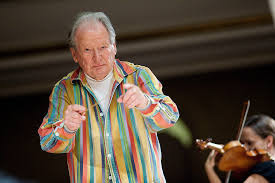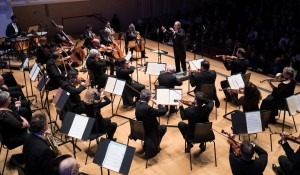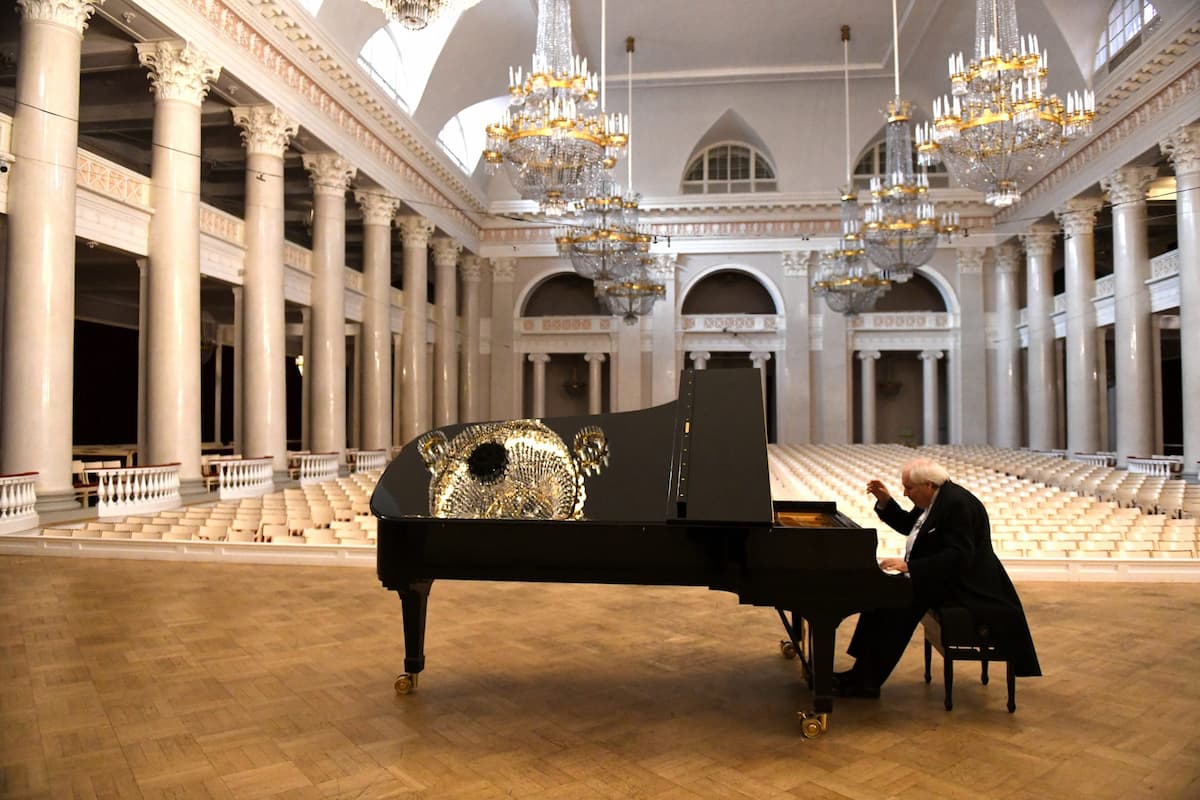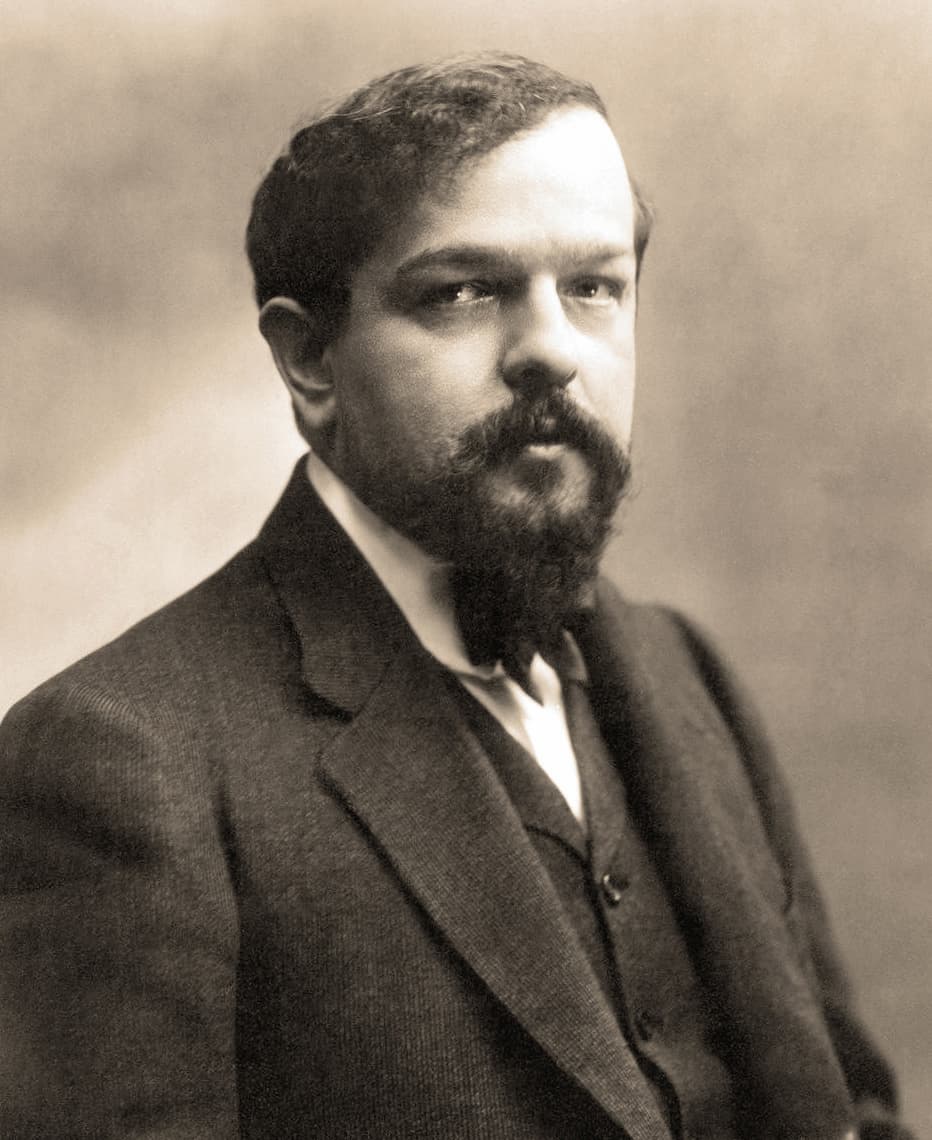
Sir Neville Marriner
Wolfgang Amadeus Mozart: “Figaro Overture”
Neville Marriner studied violin compositions and piano at the Royal College of Music and the Paris Conservatoire. He soon was appointed principal second violin with the London Symphony Orchestra, a position he held from 1956 to 1968. During that time, he established the Academy of St. Martin in the Fields, which gave its first public performance in 1959 in the London church from which it took its name. Marriner explained that becoming a conductor had allowed him to overcome his own shortcomings as a violinist, which he likened to being “like an actor with a speech impediment.” Being a conductor, he explained, “allowed me to harness the talents of an entire orchestra.” The managing director of the newly founded L’Oiseau Lyre record label attended the first concert and signed them up on the spot. What followed was a long line of recordings covering “ice-cream composers,” such as Corelli, Torelli, and Albicastro. In addition, the Academy’s fresh, technically brilliant interpretations of Vivaldi, Mozart and Haydn won enthusiastic reviews and invitations from around the world. Essentially, Marriner and the Academy revived the chamber ensemble “as a viable alternative to the big symphony orchestras, and forced orchestras everywhere to improve their act.”
 Marriner and the Academy transformed the classical music scene. And they did so entirely without subsidies or Arts Council grants. Salaried orchestras, according to Marriner have a dreadful “unionized attitude, they severely distort the market, and if the British Arts Council give you money, they also tell you how to spend it.” Instead, he treated the players as family. Although selected for musicianship, the most important test was one of character. “If they are miserable devils, they don’t get invited back.” Technically polished and musicologically sound, Academy recordings offer convincing interpretation of exquisitely shaped music. Marriner eventually expanded the repertoire to include Beethoven, Schubert, Schumann and British composers Britten and Elgar. He also founded the Los Angeles Chamber Orchestra, and served as music director of the Minnesota Orchestra and the Southwest German Radio Orchestra in Stuttgart. For his service to music in Britain he was made a Commander of the British Empire in 1979, and knighted in 1985. Queen Elizabeth II recognized his achievements in the arts, science, politics, industry and religion in 2015, and made Sir Marriner a “Companion of Honor.” Music Director of the Academy of St. Martin in the Fields from 1958 to 2011, and Life President thereafter, England’s most prolific conductor Sir Neville Marriner passed away peacefully on 2 October 2016.
Marriner and the Academy transformed the classical music scene. And they did so entirely without subsidies or Arts Council grants. Salaried orchestras, according to Marriner have a dreadful “unionized attitude, they severely distort the market, and if the British Arts Council give you money, they also tell you how to spend it.” Instead, he treated the players as family. Although selected for musicianship, the most important test was one of character. “If they are miserable devils, they don’t get invited back.” Technically polished and musicologically sound, Academy recordings offer convincing interpretation of exquisitely shaped music. Marriner eventually expanded the repertoire to include Beethoven, Schubert, Schumann and British composers Britten and Elgar. He also founded the Los Angeles Chamber Orchestra, and served as music director of the Minnesota Orchestra and the Southwest German Radio Orchestra in Stuttgart. For his service to music in Britain he was made a Commander of the British Empire in 1979, and knighted in 1985. Queen Elizabeth II recognized his achievements in the arts, science, politics, industry and religion in 2015, and made Sir Marriner a “Companion of Honor.” Music Director of the Academy of St. Martin in the Fields from 1958 to 2011, and Life President thereafter, England’s most prolific conductor Sir Neville Marriner passed away peacefully on 2 October 2016.
Amadeus Soundtrack: Sir Neville Marriner/Academy of St. Martin in the Fields



